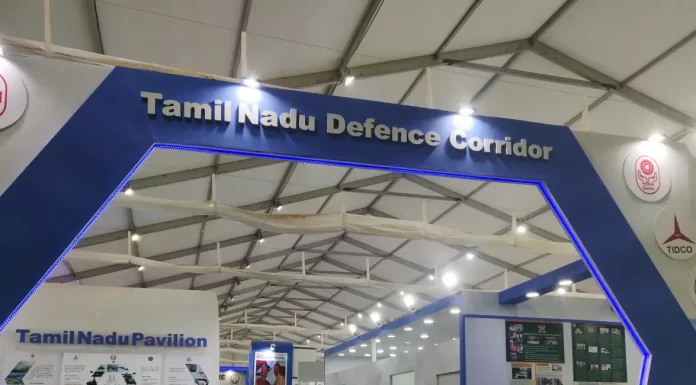The Tamil Nadu Defence Industrial Corridor (TNDIC), an initiative under the Tamil Nadu Industrial Development Corporation (TIDCO), has opened a job opportunity for the position of Vice President. This role is central to the state's ambitious plans to bolster its presence in the aerospace and defence sectors, contributing to both national and regional development.
This corridor, a key component of India's defence and aerospace strategy, aims to create a robust ecosystem for the manufacturing of defence equipment and components, and the establishment of aerospace parks. It signifies Tamil Nadu's commitment to becoming a key player in these industries, driven by innovation and technological advancement. The Vice President's role is crucial in steering this vision towards realisation, making it a career-defining opportunity for the right candidate.
The TNDIC's objectives align with the national goals of indigenisation and self-reliance in the defence sector, particularly under the Atmanirbhar Bharat initiative. The Vice President will have the responsibility of aligning the corridor's activities with these national priorities, fostering partnerships between the government and private sector, and ensuring the sustainable growth of the aerospace and defence industries in Tamil Nadu.
Key Responsibilities: The Vice President will be tasked with a range of critical functions, including:
- Facilitating communication and follow-up with the Central Government and various agencies to acquire central government schemes and grants.
- Liaising with the Ministry of Defence (MoD) for various activities related to the Tamil Nadu Defence Industrial Corridor.
- Managing correspondences and periodic returns with the MoD and Tamil Nadu Industrial Department.
- Overseeing the program management for the establishment of Flying Training Organisations, a Flight Testing Laboratory, the Sulur Aerospace Park, and other aerospace-related projects.
- Establishing and managing test centres for Unmanned Aerial Systems (UAS) and mechanical aspects.
- Representing TIDCO and leading TNDIC in national and international forums like the Def Expo, Aero India, Wings India, and the Global Investor Summit.
- Maintaining and creating a database of Aerospace & Defence industries in Tamil Nadu, including data on A&D manufacturing output.
- Acting as a domain expert on matters related to Aeronautical Engineering.
- Providing industry research to inform policy decisions by the Government of Tamil Nadu and TIDCO, aimed at supporting the growth of the A&D industry.
- Facilitating liaison between the Indian Armed Forces and A&D industries in Tamil Nadu to fulfil indigenisation and self-reliance objectives.
- Coordinating overall activities of TNDIC.
Qualifications and Experience:
- At least 20 years of direct experience in the Aerospace & Defence industrial sector, either with the Indian Armed Forces or in the private sector.
- Proven leadership, strategic management skills, and business acumen, with the capacity to manage diverse disciplines across multiple locations.
- Excellent communication and interpersonal skills.
- A degree in Aerospace or Aeronautical Engineering.
- Management education is preferred.
- Knowledge of aircraft or aircraft engines' operation and maintenance, or expertise in other major A&D platforms.
Interested candidates can share their CV at [email protected]. This role is not just a job, but a chance to be at the helm of a transformative journey in Tamil Nadu's Aerospace & Defence sector.
So far, India has established two major Defence Industrial Corridors.
- Uttar Pradesh Defence Industrial Corridor: This corridor includes areas in Uttar Pradesh such as Aligarh, Agra, Kanpur, Lucknow, Jhansi, and Chitrakoot. It aims to bolster the defence manufacturing ecosystem in the region, contributing to indigenous production and the overall development of the defence industry.
- Tamil Nadu Defence Industrial Corridor: This corridor encompasses areas in Tamil Nadu including Chennai, Coimbatore, Hosur, Salem, and Tiruchirappalli. Similar to its Uttar Pradesh counterpart, it focuses on enhancing the defence manufacturing sector, with a particular emphasis on leveraging the existing industrial and technological base in the state.
These corridors are part of India's broader strategy to promote the domestic defence industry, reduce reliance on imports, and achieve self-reliance in defence manufacturing under the “Make in India” and “Atmanirbhar Bharat” initiatives. They are intended to act as catalysts for regional economic development, creating employment opportunities, and promoting collaboration between public and private sector entities in the defence manufacturing space.











